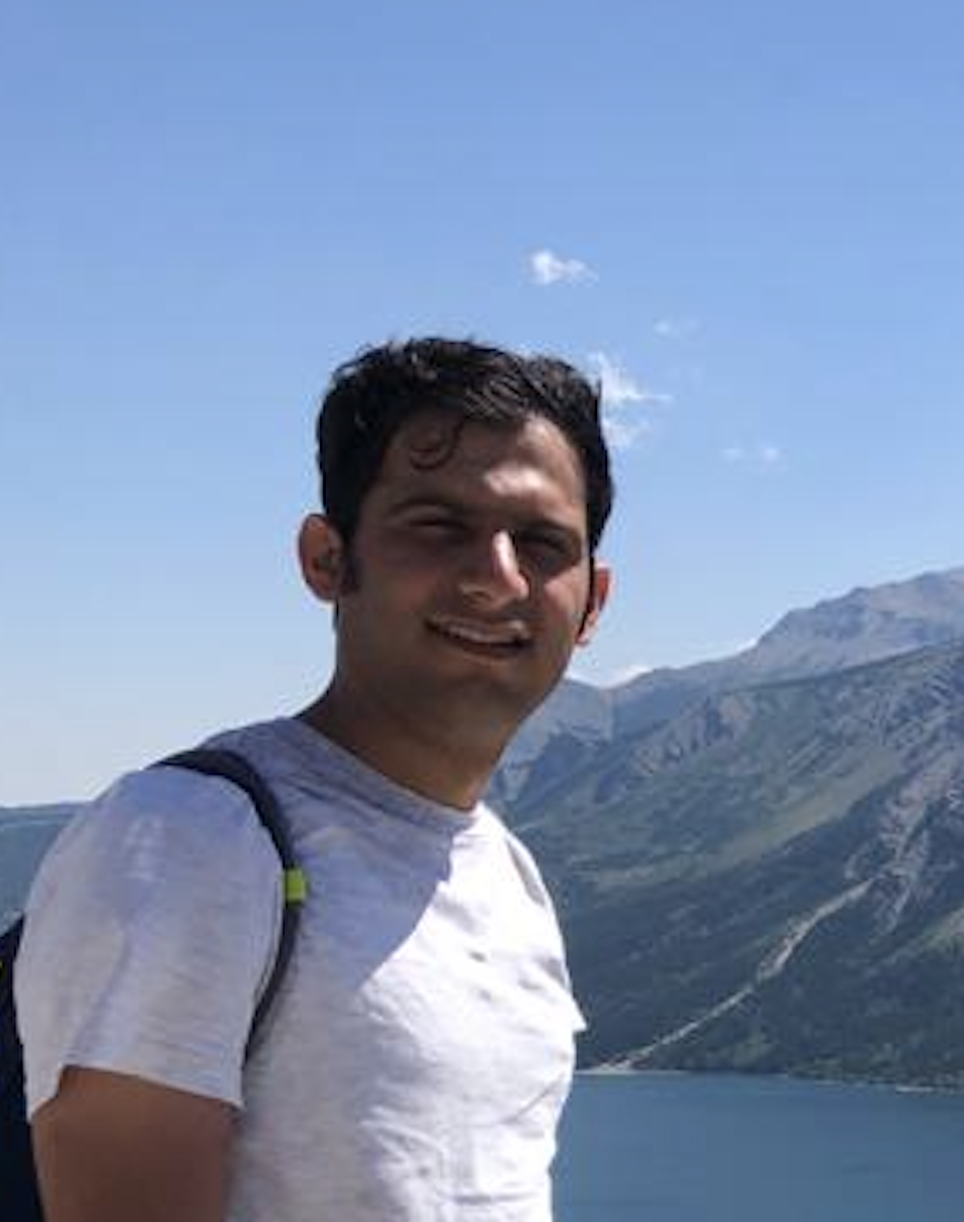PEOPLE FROM THE WINSHIP LAB

Dr. Winship is an Associate Professor and Alberta Innovates Health Solutions Scholar in the Department of Psychiatry at the University of Alberta. As Director of the Neurochemical Research Unit (NRU), he leads a diverse group of scientists investigating the funadmental neurobiology of the CNS and working to develop new therapies for psychiatric and neurolgocial disorders.
Research in the Winship lab combines advanced imaging and behavioural neuroscience to define how the integrated CNS functions and identify key pathophysiological or adaptive processes in brain disease. These insights are used to develop new therapies for disorders including stroke, multiple sclerosis, and schizophrenia.

Sima Abbasi Habashi completed her Masters MSc in Neuroscience with Major in Animal Physiology at the University of Tehran, Tehran, Iran. She is now pursuing a PhD with Dr. Winship.
Sima's PhD research uses advanced in vivo imaging to measure collateral blood flow during experimental therapies to improve blood flow and reduce brain damage due to stroke. Her work is looking at novel humoural regulators of collateral failure, as well as new pharmacological tools, to identify new collateral therapuetics.

Hossein is currently completing his PhD degree under the supervision of Dr. Winship in the Neurochemical Research Unit of the Department of Psychiatry. He previously completed a MSc in Immunology at Tabriz University of Medical Sciences, Tabriz, Iran, in 2013.
Hossein is studying models of cognitive impairment in schizophrenia as they relate to changes in cortical activity and extracellular matrix integrity.

An is currently completing her PhD degree in Psychiatry under the supervision of Dr. Winship. She previously completed her BSc (Hons) in Neuroscience in the lab in Winter 2022, investigating transcriptional changes post-stroke.
An is continuing studying the transcriptional profile of blood and neutrophils after stroke, and is particularly interested in age- and sex- differences in neutrophil-specific gene expression. Neutrophils aggregation in the microcirculation has been shown to contribute to poor recovery. Using two-photon microscopy, she will map gross changes in the blood vessels to gene expression changes.

Ron is currently completing his Master's degree under the supervision of Dr. Winship in the Neurochemical Research Unit of the Department of Psychiatry. He previously completed his Honours Undergraduate BSc in Neuroscience with Dr. Winship.
Ron is studying the role of pleiotrophin in post-stroke recovery.

Amena is currently completing her Masters degree in psychiatry under the joint supervision of Dr. Winship and Dr. Chan. She previously completed her BSc. Neuroscience undergraduate thesis in the winship lab in 2023 investigating the morphological profile of inhibitory interneurons in a mouse model of cognitive impairment in Schizophrenia.
Her continued study uses two photon imaging techniques to uncover the functional connections between neurons of the retrosplenial cortex in a mouse model of Autism Spectrum Disorder.

Alexis is currently completing her Master’s degree under the supervision of Dr. Ian Winship and Dr. Glen Jickling. She previously completed her BSc (Hons) in Neuroscience and Mental Health from Carleton University in 2023.
Alexis’ research is focused on the production of neutrophil stalls post ischemic stroke. She is analyzing various treatment methods to decrease neutrophil adhesion within the microvasculature thus increasing cerebral blood flow and improving stroke outcomes.

Yonglie received his Bachelor of Medicine and Masters of Medicine in Neuroscience in China. He has worked as an animal surgeon or laboratory technician in different Departments and Institutions at University of Alberta since 2004.
Yonglie joined Dr. Winship’s lab in November 2014. His research focuses on the mechanisms of remote ischemia (with support from the QNRF) and the use of laser speckle contrast imaging and 2-photon imaging to measure collateral blood flow after distral middle cerebral artery occlusion in rodents.
Tricia attended the University of British Columbia to obtain a BSc. Biochemistry in 2010 and then went on to complete a MSc. Experimental Medicine at McGill University in 2014. Her research focused on genetic regulation of hepatic iron metabolism, focusing on upstream regulation of hepcidin.
Tricia joined the NRU in May 2016 as the NRU - Dewhurst labs biotechnologist and lab coordinator. She brings a wealth of experience to the Winship, Todd, and Chan labs. For the Winship lab, she uses her background in genetics to maintain the transgenic mice colonies as well as helping to develop novel assays with the graduate students.
WINSHIP LAB ALUMNI
PhD, Fall 2023 || Novel methods to drive neuroplasticity by manipulating CSPGs and CSPG receptors in vitro and in vivo after stroke.
PhD, Fall 2022 || An exploration of neural network activity within the limb-associated somatosensory cortex of the healthy and stroke injured brain of mice
PhD, 2019 || Pathological neural plasticity in animal models of schizophrenia
PhD, July 2019 || Imaging the hemodynamics of pial collaterals and evaluating collateral therapeutics in rodent models of acute ischemic stroke
PhD, June 2017 || Augmenting plasticity and recovery from stroke by modulating the extracellular matrix of the central nervous system
PhD, January 2017 || Microglial response to the central nervous system injury
MSc, Spring 2023 || Intracortical administration of pleiotrophin in ischemic stroke: investigating functional outcomes and glial expression
MSc, January 2020 || Spatiotemporal characterization of post-stroke myelin density changes and their contribution to functional recovery using a novel label-free in vivo imaging technique
MSc, Exchange with Lund University, January 2019 || Spinal cord plasticity and rehabilitation after stroke
MSc, November 2015 || Pathological neural plasticity in schizophrenia
MSc, November 2013 || Augmenting collateral bloodflow after stroke
Summer Students, Honours Students